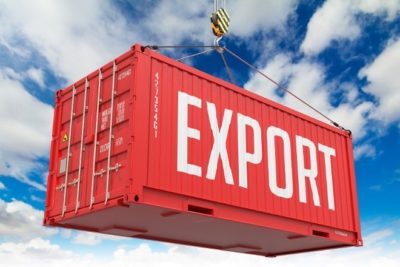By Adrienne Braumiller, Partner, Braumiller Law Group
In mid-February, the Export Control Reform Act of 2018 was introduced as bi-partisan legislation to the House. Its main goal appears to be to protect emerging U.S. technological advancements in science, engineering, and technology that could potentially be used as a military advantage, if seized and inspected at foreign ports. Currently, the bill has yet to pass the House, but within the last few days, President Trump has announced efforts that seem to be heavily aligned with the proposed Act.
Recently, President Trump announced annual tariffs and penalties to be imposed on China amounting to an estimated $50 billion for technology and trade secrets theft. Motivations behind this new wave of trade measures appear to be the same as those behind the Export Control Reform bill.
The Bill
The bill, H.R. 5040, would repeal the Cold War-era Export Administration Act of 1979, which lapsed in 2001, and provide a permanent statutory basis for export controls. It also vests authority with the President to:
- establish a list of prohibited or restricted exports;
- delegate administration and implementation to the Department of Commerce to impose license requirements for subject exports; and
- provide sanctions to companies who support countries boycotting United States trade (namely Israel) and any persons who commercially proliferate weapons of mass destruction.
While Commerce would have the sole power to issue licenses or authorization for named exports, administration of the controls would also fall on the Secretary of Defense, Secretary of State, and Director of National Intelligence, among others. Fees will not be attached to the license applications, according to the bill’s text.
One express provision excludes postal, telegraphic, telephonic, or other personal communications that do not involve an exchange of anything of value from the reach of the Act.
Another provision updates the requirements Congress uses to determine whether a country is no longer a designated State Sponsor of Terrorism. This provision doubles the length of time Congress has available to review a proposed rescission of the designation, and quadruples the time for which a country must refrain from supporting terrorism before the President removes a designation.
Of note are the broad definitions of “item” and “re-export” and “transfer” under the Act. They expand U.S. reach to items not currently under the EAR by eliminating any requirement that the item in question be located in the U.S., have U.S. origin or content, or be a by-product of U.S. technology or software. The Act proposes to extend its export controls to shipments between foreign countries that don’t contain U.S. items, but have been re-exported or transferred.
The Act itself is intended to protect U.S. technologies from being seized upon import into a country, potentially giving up critical and cutting-edge knowledge to foreign inspectors. Another bill with a similar goal has also been introduced: The Foreign Investment Risk Review Modernization Act.
The China Measures
Back in August, the USTR initiated a Section 301 investigation into several Chinese trade practices regarding technology and trade secrets of countries trying to enter the Chinese market. That investigation has concluded, and the results have culminated into the recently announced $50 billion in tariffs and trade penalties.
The USTR indicated that the measures are a result of policies that compel American companies to share critical intellectual property and technology as a barrier to entry.
Unlike the new steel and aluminum tariffs, the trade penalties are targeted and specific. New tariffs stemming from the 301 investigation results could affect up to 100 import categories. As many as a 1,300 tariff lines are reportedly being considered for increased duties. The USTR will announce exactly what products will be affected within the next two weeks. Additionally, the Trump Administration is proposing 25% tariffs on certain products in the aerospace and information communication technology sectors. China will likely respond with similar protective measures.
National security has been cited as the main motivating factor behind new tariffs. Just a few weeks ago, the Committee on Foreign Investment in the U.S. blocked Singapore-based Broadcom’s acquisition of U.S.-based Qualcomm for that same reason.
How the recent measures will affect the Export Control Reform Act’s progress, since the motivating factors are so attuned, should prove to be very interesting!



























